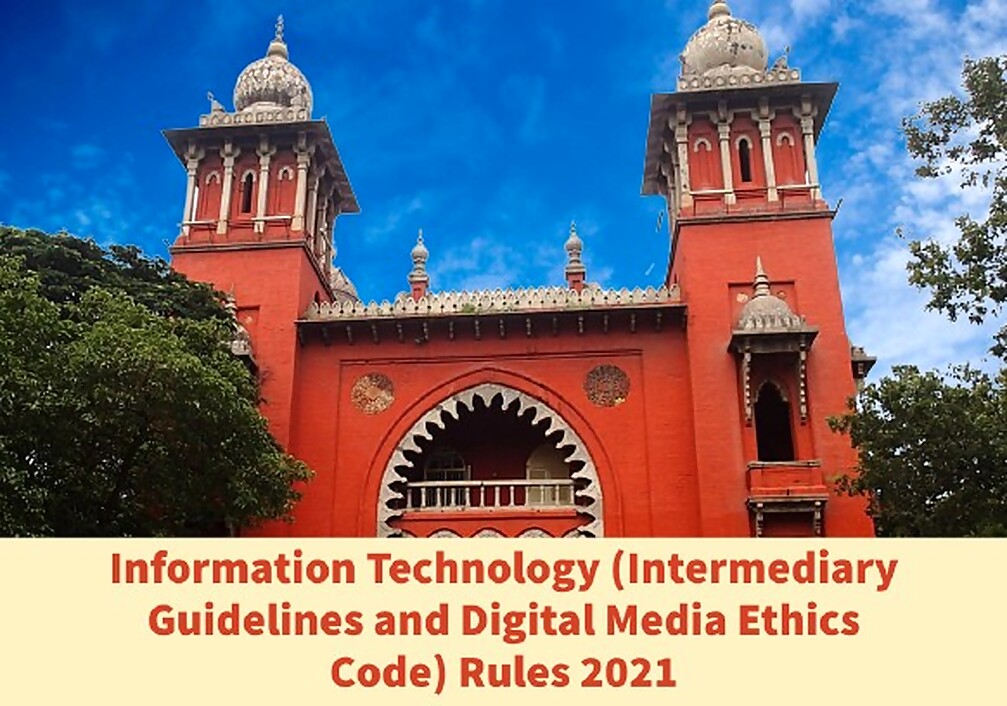Possible view taken by Arbitral Tribunal need no substitution unless such decision appears to be palpably erroneous: Madras HC

Read Judgment: M/S ENEXIO Power Cooling Solutions vs. Gita Power & Infrastructure Pvt. Ltd. &Anr
Pankaj Bajpai
Chennai, September 16, 2021: The Madras High Court has ruled that once it is acknowledged that a possible view on the set of facts had been taken by the arbitral tribunal, that the other view appeals more to the court is of no relevance as the court cannot substitute the tribunal’s view by supplanting its own.
The Division Bench of Chief Justice Sanjib Banerjee and Justice P.D. Audikesavalu observed that simply because there could be a different view taken on the set of facts, it may not be an appropriate ground u/s 34 of the Arbitration & Conciliation Act of 1996 to obliterate the finding on such count rendered by the arbitral tribunal and substitute it by the other view which appeals more to the court.
After all, the assessment in the jurisdiction u/s 34 of the Act of 1996 has more to do with the decision-making process, rather than the decision itself, unless the decision appears to be palpably erroneous or manifestly arbitrary and causes grave miscarriage of justice, added the Bench.
The background of the case was that the contract provided for the setting up of a cooling tower in Gummudipoondi. The claim of the appellant contractor was on account of the work and supplies for which it remained unpaid.
Whereas, the counter-claim by the respondent employer was on account of liquidated damages for the delay in the erection and commissioning of the plant, the customs duty component which it ought to have been reimbursed and sundry other claims on account of damaged gear box or faulty ducts or the like.
The respondent while challenging the award passed by the Arbitral tribunal, claimed that the principal claim of the contractor was barred by limitation and that the tribunal had ignored vital evidence particularly as apparent from the minutes of a meeting held between the parties.
The High Court observed that a challenge to an arbitral award requires high tests to be met by the challenger and an apparently erroneous view may not necessarily be corrected, nor will a flawed finding or a perceived mistaken interpretation excite the court unless there is something more to the matter.
“The high tests were not met by the respondent herein and it appears that the arbitration court embarked on an independent exercise to assess the several of the heads of claim and counter-claim, including on the aspect of limitation, without reference to the award or attempting to ascertain whether the arbitral tribunal had applied its mind to the matters in issue”, noted the Bench.
The Division Bench noted that in the present case, an award rendered by the arbitral tribunal constituted by the International Chamber of Commerce (ICC)has been rendered to naught on the perception of the arbitration court that the period of limitation applicable to the claim and the counter-claim may not have been appropriately reckoned and that the arbitral tribunal failed to take into account evidence that was before it and ignored the same.
The High Court went on to reiterate that the court exercising authority u/s 34 of the Act, 1996 does not assume appellate authority.
Indeed, it has been the refrain in this jurisdiction over a century and more of jurisprudence that has developed that the court is loathe to correct any error since the parties had abandoned the sovereign forum of the court and had agreed to carry their disputes to a consensual forum, added the Court.
“There is no doubt that the court exercises a degree of superintendence; but, ordinarily, errors of jurisdiction are corrected, rather than errors within jurisdiction. It is also accepted, as in the case of exercise of discretion, that if two views are possible on an issue or an aspect, that the other view appears more plausible to the court may not empower the court to supplant its view over the arbitral tribunal’s while assessing the propriety of an award”, observed the Bench.
The High Court expressed that flourishing export of litigation by this country may continue unabated till the penchant for wanton tinkering with arbitral awards is reined in.
Sign up for our weekly newsletter to stay up to date on our product, events featured blog, special offer and all of the exciting things that take place here at Legitquest.




Add a Comment